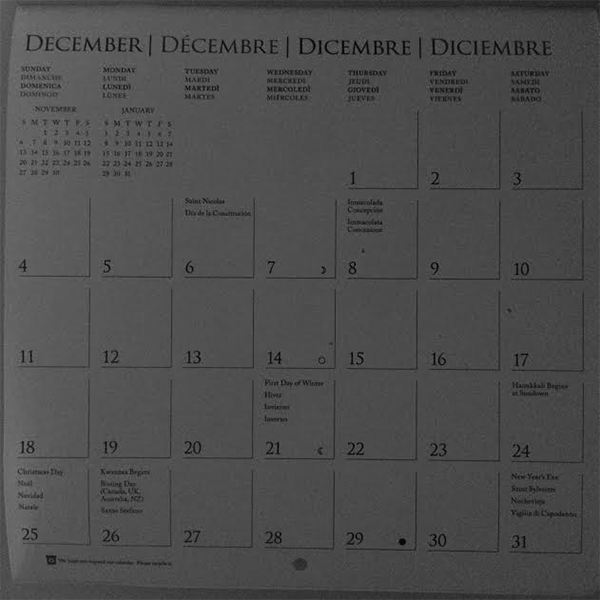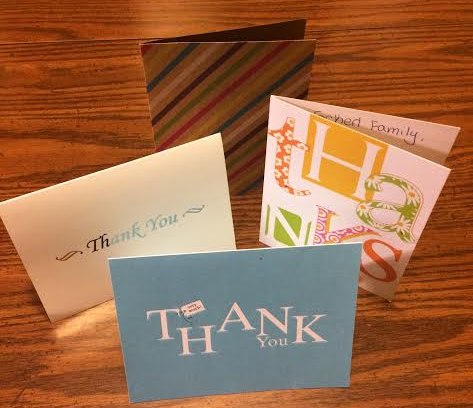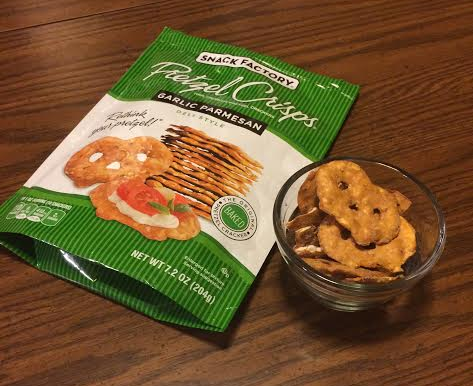Take these 12 tips to combat overeating during ever-stressful holiday season
The holidays are a time of cheer, love and, of course, food. The following tips can be used to help decrease the likelihood of overeating during this time and make it a more enjoyable experience for all.
 Keep Your Hands Busy
Keep Your Hands Busy
If your hands are preoccupied with a specific task, they can’t shove food in your mouth. Try doing a puzzle, playing a board game, take pictures or anything else you can think of (that doesn’t involve food) to keep yourself preoccupied.
 Drink Water Throughout the Day
Drink Water Throughout the Day
Not only will this keep your stomach partially full of water at all times, it’ll also help you feel great. That hydration will constantly help to flush excess salt, sugar and other toxins out of your system, leaving you feeling happier and healthier throughout the holidays.
 Limit Yourself to One Treat Per Day
Limit Yourself to One Treat Per Day
If you make a point to eat no more than one (maybe two) treats per day, you won’t make yourself sick by eating a gingerbread house, Santa’s cookies, pie, chocolate cheesecake and 14 cherry cordials all in one sitting. This should greatly decrease the likelihood of head- and stomachaches.
 Avoid Super Sugary Drinks
Avoid Super Sugary Drinks
Beverages like apple cider, hot cocoa and tricked-out coffee drinks aren’t at all filling, and they can be super high in calories and sugar. These drinks are alright every once in awhile, but they should be treated more like special treats than normal, everyday beverages.
 Avoid Extra Snacks While You’re Out
Avoid Extra Snacks While You’re Out
If you go bowling with friends, don’t order a plate of fries just because. If your family goes out to a movie, pass on the popcorn and chocolates. Save room for bigger and/or better snacks and meals you’re planning throughout the day. Your tummy (and your wallet) will thank you.
 Only Sample the Special Stuff
Only Sample the Special Stuff
If your mom makes her apple pie once a month throughout the year, you probably don’t need to fill up on that during the holidays. Instead, try focussing more on the foods you may only have the chance to eat during the holidays, specifically things that long-distance friends or family bring, or items you can’t make yourself.
 Remember Your Fruits and Vegetables
Remember Your Fruits and Vegetables
Fruits and veggies are typically filling, so try to eat them first, along with your protein(s) of choice. By the time you dive into the breads, pastas and sweets, you’re already a bit full. Not to mention, you should try to eat something at least remotely healthy, even on special occasions.
 Eat Appropriate Portions
Eat Appropriate Portions
During a larger meal, start off by taking smaller portions for your first serving, and wait a few minutes before going back for seconds. If you’re still hungry, you can go back and take a second serving of your favorite dishes.
 Have a Go-To Response Ready for Food Offers
Have a Go-To Response Ready for Food Offers
When you’re around family during the holidays, sometimes it feels as though you’re constantly being offered and excess amount of food. One tip that may help you avoid feeling like you have to take something from everyone who offers is to have a polite negative response ready to use. When Grandma offers you yet another slice of pie, try saying, “Thanks, but I’m pretty full right now.” When your aunt brings out a third try of her holiday fudge for you to sample, consider saying, “I’ll pass for now, thanks, but maybe later.” There’s nothing wrong with saying no to food as long as you do it politely.
 Follow the Pleasure Principle
Follow the Pleasure Principle
While we’re often taught to clean our plates, it’s usually OK to interpret that rule more loosely during the holidays. If you’re on your second helping of cheesy potatoes, and they just don’t taste that great anymore, it is OK to stop eating them. Listen to your body. Don’t force it to eat more or less than it wants to.
 Don’t Eat Out of the Container
Don’t Eat Out of the Container
If there’s a buffet of snacks (meat/cheese trays, chips, Chex mix, cookies, bars, etc.) laid out before you. Don’t stand next to the counter and eat out of the containers. Put a handful of whatever you want in a dish and walk away. This helps to keep you aware of just how many servings of any given snack you’ve consumed and prevents you from making too many trips to the snack bar.
 Stick to Three Meals a Day
Stick to Three Meals a Day
Skipping breakfast and/or lunch in anticipation of a larger meal later in the day isn’t always a good idea. When you don’t eat for a while, your body can start to crave high-carb foods because it thinks it’s in starvation mode. So, after an extended period of time without food, you’re more likely to take more food than you need and overload on things like cookies, bars or breads before you tear into anything healthier, like salads, meats or veggies.









You must be logged in to post a comment Login